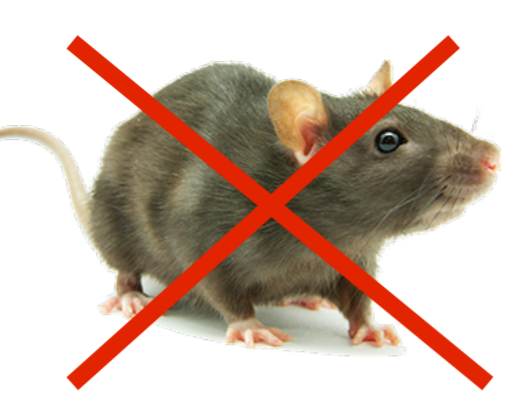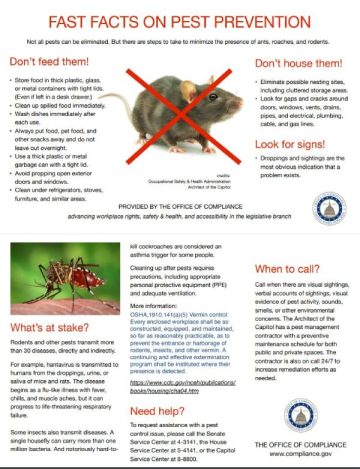FAST FACTS ON PEST PREVENTION
Not all pests can be eliminated. But there are steps to take to minimize the presence of ants, roaches, and rodents.
Don’t feed them!
- Store food in thick plastic, glass, or metal containers with tight lids. (Even if left in a desk drawer.)
- Clean up spilled food immediately.
- Wash dishes immediately after each use.
- Always put food, pet food, and other snacks away and do not leave out overnight.
- Use a thick plastic or metal garbage can with a tight lid.
- Avoid propping open exterior doors and windows.
- Clean under refrigerators, stoves, furniture, and similar areas.
Don’t house them!
- Eliminate possible nesting sites, including cluttered storage areas.
- Look for gaps and cracks around doors, windows, vents, drains, pipes, and electrical, plumbing, cable, and gas lines.
Look for signs!
- Droppings and sightings are the most obvious indication that a problem exists.
What’s at stake?
Rodents and other pests transmit more than 30 diseases, directly and indirectly.
For example, hantavirus is transmitted to humans from the droppings, urine, or saliva of mice and rats. The disease begins as a flu-like illness with fever, chills, and muscle aches, but it can progress to life-threatening respiratory failure.
Some insects also transmit diseases. A single housefly can carry more than one million bacteria. And notoriously hard to kill cockroaches are considered an asthma trigger for some people.
Cleaning up after pests requires precautions, including appropriate personal protective equipment (PPE) and adequate ventilation.

